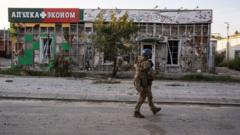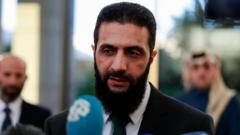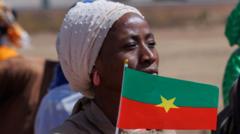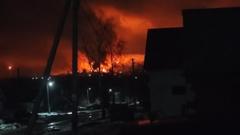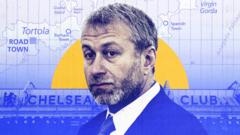As Putin approaches his quarter-century mark of leadership, the legacy he has fostered invites scrutiny. Investigating his assertion of sovereignty, the implications of the ongoing war in Ukraine, and international responses, this article reveals the bifurcating paths of Russian history under his rule.
Reflecting on Putin's 25 Years: A Legacy of Sovereignty or Divisive Conquest?
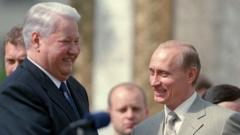
Reflecting on Putin's 25 Years: A Legacy of Sovereignty or Divisive Conquest?
As Vladimir Putin marks 25 years in power, we explore the complex narrative surrounding his leadership, sovereignty claims, and the devastating impacts of the war in Ukraine.
Vladimir Putin has recently reached a significant milestone: 25 years as a paramount leader of Russia, a journey that began on December 31, 1999, when he assumed office following Boris Yeltsin's unexpected resignation. Back then, few could have anticipated his enduring grip on power, nor the contemporary context of his leadership marked by warfare and geopolitical tensions.
Yeltsin famously urged Putin to "take care of Russia," a phrase that resonates more than ever as Russia grapples with the ramifications of its escalating war in Ukraine. The conflict has decimated Ukraine, with massive infrastructure destruction and the displacement of millions of its citizens. However, it hasn't spared Russia: economic sanctions, crippled defenses, and escalating military losses have contributed to a grim domestic atmosphere.
Over the past quarter-century, the evolution of Putin’s leadership style has elicited varying perceptions. As a former Western ally in the early 2000s, his demeanor has shifted into one marked by contentious nationalism and perceived megalomania. Notably, former NATO chief Lord Robertson observed a transformation in Putin, recognizing a notable departure from prior commitments regarding Ukraine's sovereignty.
Despite the cataclysmic consequences of his "special military operation," Putin continues to express confidence in fulfilling Yeltsin's directive. During a press conference reflecting on his tenure, he asserted that he has not only looked after Russia but also steered it away from existential threats, framing his actions as a defense of national sovereignty against Western intrusions.
Yet this begs the question: does he truly perceive his rule as a restoration of Russian dignity, or is this perspective a self-justification for the aggressive path he has pursued?
The true answer may remain ambiguous, but it is pivotal to understanding Russia's future trajectory amid the ongoing conflict. The path from Yeltsin to Putin illustrates the fragile balance of power, legitimacy, and national identity—an interplay that will shape the future of Russia and its relations with the world.



